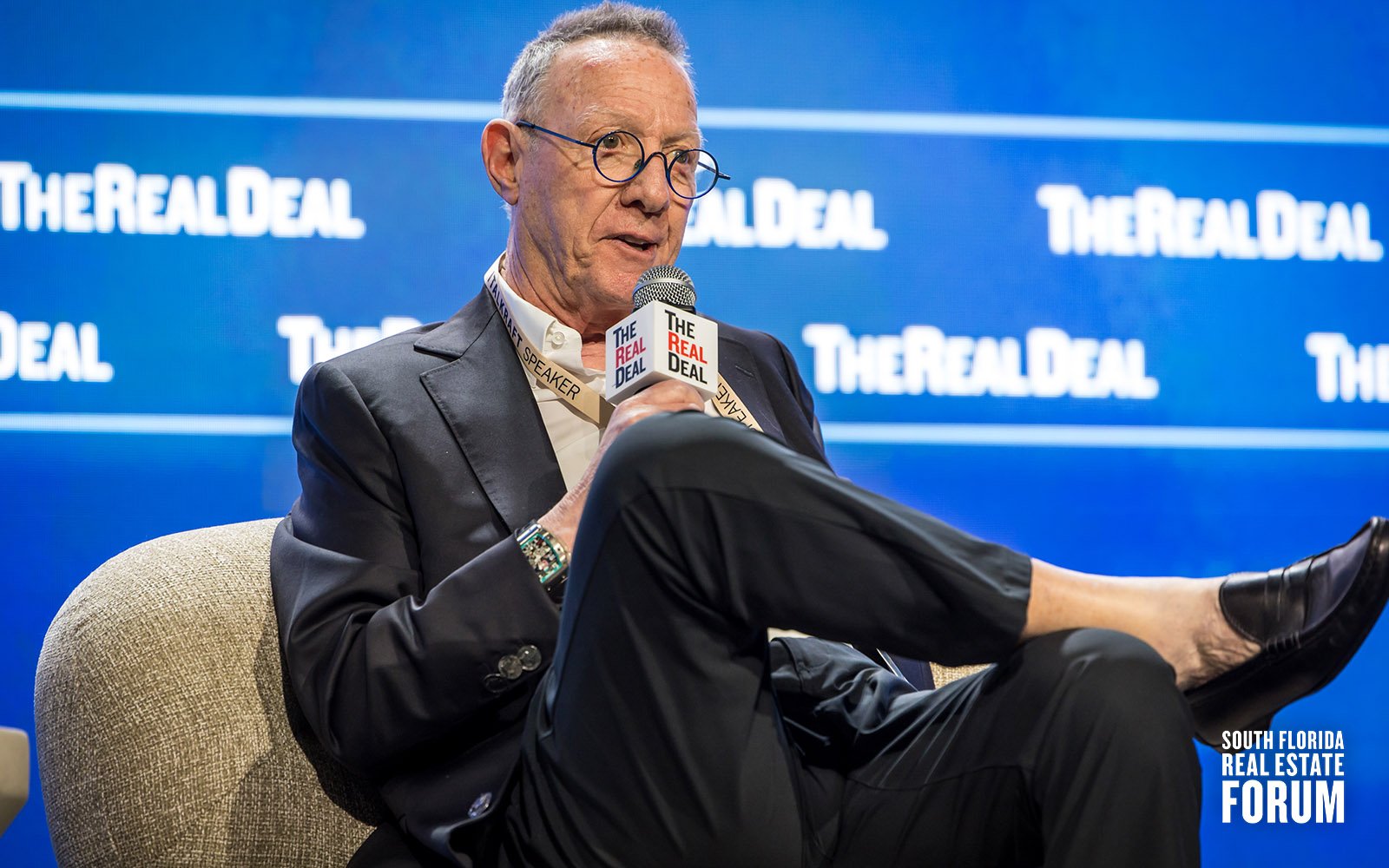“How many of you were born in Miami?” Carlos Rosso asked the crowd. From the hundreds seated, just a few hands raised.
“Each one of you came to Miami, and each one of you needed a condo,” the Rosso Development head said from the main stage at The Real Deal’s Miami Real Estate Forum. “And each one of us built one for you.”
Rosso was speaking alongside Continuum’s Ian Bruce Eichner and Property Markets Group’s Kevin Maloney, on a panel conversation on the state of South Florida’s new development condo market. It was one moment that touched on a theme repeated throughout the conversation: Developers thrive when Miami is growing.
Rosso, Maloney and Eichner dug into the issues threatening the market’s momentum and how they’re differentiating their projects in a competitive field. The pipeline is oversaturated, and demand for units at the higher end is softening, they said. But their message to the brokers in the audience was simple and clear: “We want to pay you.”
“We love paying commissions because that means we have sales,” Maloney said. And sales are top priority in a highly competitive market.
“A lot of the projects you see aren’t going to get built, they priced themselves too low and costs went up,” said Maloney, whose current pipeline includes the planned supertall Waldorf Astoria Residences Miami and E11even Club Residences Beyond. Construction costs have surged in recent years, but Maloney said the market slowdown has started to bring them back down to earth.
Branding plays a crucial role in the marketplace, if chosen well.
“A brand helps us sell because we don’t have to explain [what we’re selling],” Rosso said, whose planned projects include the Standard Residences, Midtown Miami. But he cautioned against running rampant with just any brand.
He pointed to magazine and car brands –– Vertical Developments and Urban Network Capital Group are planning an Elle-branded tower in Edgewater and Michael Stern is planning a Mercedes-Benz tower in Brickell –– as stretching the relationship between brands and buildings. “You have to be careful not to exaggerate the concept of branding.”
Momentum is crucial in a packed new development pipeline, the developers said. The longer a project takes, the greater the risk to profit margins. Maloney said his first E11even-branded tower sold through 400 units in 90 days, but still barely broke even because construction costs rose so rapidly.
“Our biggest, biggest, biggest enemy is time,” said Rosso. “Time for us is uncertainty.”
Included in uncertainty are affordability and social infrastructure challenges facing a growing Miami. Eichner, whose pipeline includes La Baia North and South in Bay Harbor Islands, raised concerns about the dislocation of Miami’s working class.
“People are being forced out of Miami-Dade County who are regular everyday workers,” said Eichner. “We’ve got to figure out workforce housing and the government has to play a role in this.”
Rosso also raised the issue of private school shortages and stricter immigration policies restricting how many people are able to relocate to the Miami market and hampering its growth. The perception that Miami is open for business and open to all is critical for the region’s continued flourishing.
“We cannot allow [that perception] to change,” he said. “Because that is our business.”
Miami market relevance
If this topic impacts buyers or sellers, the most useful context is what is happening locally. Track current pricing, inventory, and days on market in Miami, and compare active listings by building or neighborhood before making decisions.







